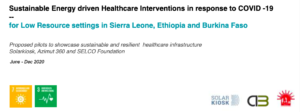Shilpa Chandrashekar is a dairy farmer from Bettahalli village, Mandya district, Karnataka. A family of 4, Shilpa and her husband practice dairy farming as their primary occupation. They have 12 cows of which 8 are adult cows with 5 giving milk regularly and 3 more cows which will start within a month. The couple also own a 3 acre farm which is uncultivable as their bore well failed after multiple attempts to resurface it. They have dug a small pond which allows them to cultivate little fodder and some vegetables.
Early this year, right before the installation of the milking machine in January 2020, Shilpa’s husband suffered with a serious bike accident severely injuring him in the head and his stomach. Since his accident, he has not been able to engage in dairy activities; and has not been able to take up alternative employment either due to his condition. He has to receive regular treatment in the district hospital which is 22 kms away from their village. dapibus leo.
Solution Overview
Shilpa is an active member of a Self Help Group formed by SKDRDP, a local micro finance institution that supports women. In January, 2020 a local enterprise along with the dairy secretary had conducted a meeting where they showed some videos of solar powered milking machines and it’s applications to local dairy farmers. She was very keen on adopting the solution as her husband could not help her in the dairy farm anymore, reducing her productivity and milking capacity. She saw this machine as an opportunity to revive her livelihood and sell to the nearest collection centre. SKDRDP informed SELCO of her CIBIL score which is below 500 due to which she was unable to take loans from financing institutions. With the machine cost of INR 73,000, she was linked to the Karnataka Milk Federation scheme which covered INR 15,000 of the amount and the remaining support was given by SELCO Foundation and SKDRDP.
- She also took up the lighting solution (2 light system in her home and 1 light system in the shed) as they need to start milking the cows by 5 AM before sunrise. The region also suffers with 3-4 hours of power cut which are erratic due to which the light is very reliable and helpful.
- Due to the milking machine, her husband is also able to help with milking the cows where it takes about 6 minutes to milk each cow, twice a day.
I was hesitant in adopting the milking machine initially because it felt like an expensive prospect. However, I would not have been able to practice my livelihood today without it. After my husband’s accident I have to manage all the work myself and without the machine it would have been impossible. Due to the lockdown, KMF collection centres are only open in the morning and evening between 4.45-6.00. With such odd timings, my family cannot help and I cannot hire labour because of the lockdown. The intervention has been very helpful to us.
Shilpa Chandrashekar, Dairy Farmer Tweet
Key Takeaways
Decentralized Market Linkage:
The lockdown was very strict in the region with all the district borders sealed off. However, the dairy industry was deemed as an essential service producing essential commodities allowing constant income. With the closest collection centre being one kilometre away in a decentralized manner, she was unaffected by the lack of transport and the lockdown.
Labour Shortage:
Shilpa would have had to hire a labourer to support her with milking and other activities due to her husband’s condition. This would not have been a possibility due to the lockdown as labourers are unable to move freely and seek employment. Due to the milking machine, she has been able to manage by herself even on days that her husband cannot assist her.
Lack of Fodder:
The dairy industry across the country has been impacted by one critical component – fodder. The lack of availability of fodder has affected a lot of dairy farmers as it is a
key input supply, severely affecting the output of the cows. Shilpa has also been impacted by this. Karnataka Milk Federation would usually supply them with a particular seed, which is used in the feed. This has been unavailable due to the lockdown. Due to this, the nutritional value of the feed has reduced resulting in the cows producing 45 litres as opposed to 60 litres per day. The milk has grades as well based on the fat content on the basis of which rates are decided, with the milk falling down a grade. This has reduced her income since the lockdown.
Support from Financial Institution:
The loan repayment has been put on hold by SKDRDP due to the lockdown impacting the livelihood of most communities. Shilpa, on the other hand has been able to pay the loan back as per her convenience. She has also gotten a personal loan of INR 25,000 with no interest from the institution to take care of her husband’s medical expenses.






